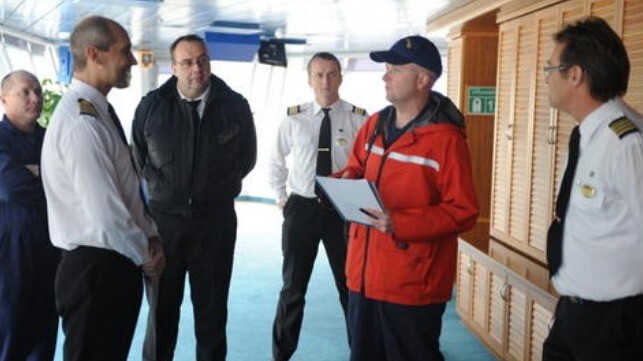EU Agrees to Legislation Enhancing Flag State and Port State Inspections

The European Council and Parliament reached provisional agreements on key pieces of legislation to further strengthen maritime safety. The steps focus on enhancing the administration of both Flag State and Port State inspections as well as expanding the regimes to ensure consistency and interaction among the different organizations responsible for executing the inspections.
“Today’s agreements will substantially contribute to safer and cleaner maritime transport in Europe,” said Paul Van Tigchelt, Belgian deputy prime and minister of justice and the North Sea. “Our marine environment will be better protected, and the highest standards of shipping will be adequately preserved with the use of modern tools and through an enhanced cooperation between competent authorities.”
Negotiators from the two EU bodies worked to iron out differences and reach the provision agreement on the two pieces of legislation. They said the goal was to maintain high-quality shipping in the EU while also safeguarding the competitiveness of European shipping. While aligning EU regulations with international rules and increasing consistent enforcement, they also said it maintains reasonable costs for operators and member states’ administrators.
One piece of legislation focuses on Flag State inspections. It addresses inspections for ships engaged in international voyages. They wanted to ensure that member states have sufficient resources to carry out the inspections correctly, effectively, and consistently, while also providing oversight of the organizations.
The Commission is also mandated to set up a master database while they also look to encourage a higher uptake of digital solutions at the state level. They also want to ensure a harmonized approach to understanding, reporting, and measuring performance and data sharing among the organizations.
The legislative initiative takes similar steps for Port State Inspections of foreign ships and also introduces a voluntary inspection regime for larger fishing vessels defined as over approximately 79 feet (24 meters) in length. The legislation also seeks to harmonize the approach for carrying out Port State Inspections with a focus on the competency of the master, officers, and crew, the condition of the ship, and ensuring equipment complies with required international conventions and EU law.
The organizations charged with conducting the inspections will have five years to introduce the quality management system mandated under the legislation.
The provisional agreements require further steps to gain EU endorsement and formal adoption before they can enter into force. The expectation is that the adoption at the EU level will happen in the fall. Then the individual states will have 30 months to incorporate the provisions in their national legislation.
The agreement on the regulations for ship inspections follows political agreement earlier in February among the same two organizations to modernize the EU’s maritime accident investigation regimes. It seeks to enhance the capacity of the accident investigation bodies to conduct and report in a timely, expert, and independent manner. It also aligns and improves the processes and provides for peer review to improve processes across the EU.

that matters most
Get the latest maritime news delivered to your inbox daily.
A key provision of the accident investigation legislation seeks to improve the protection of fishing vessels and their crews. It incorporates smaller fishing vessels, under 50 feet (15 meters) in length, into the inspection regulations. Accidents involving fatalities and loss of vessels in this category will now face the same inspection requirements as larger vessels.
The efforts at the revisions are part of the broader maritime safety package that was submitted by the European Commission on June 1, 2023. There are a total of five legislative proposals with the others focusing on ship-source pollution and the European Maritime Safety Authority (EMSA). The overall goal is to modernize EU rules on maritime safety and reduce water pollution from ships.
